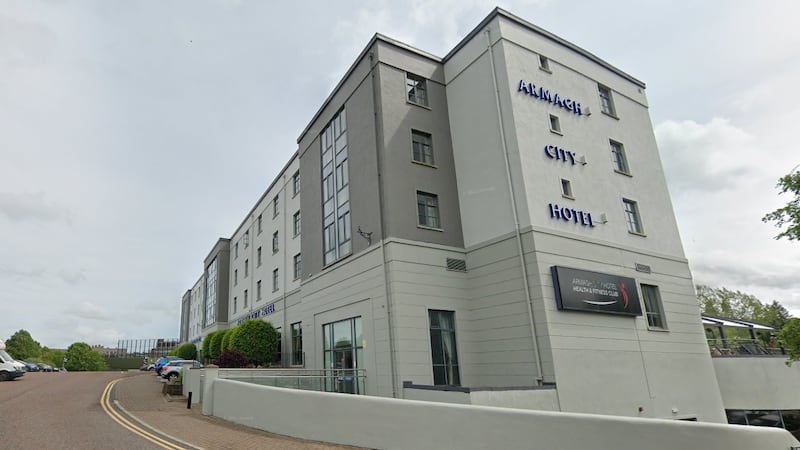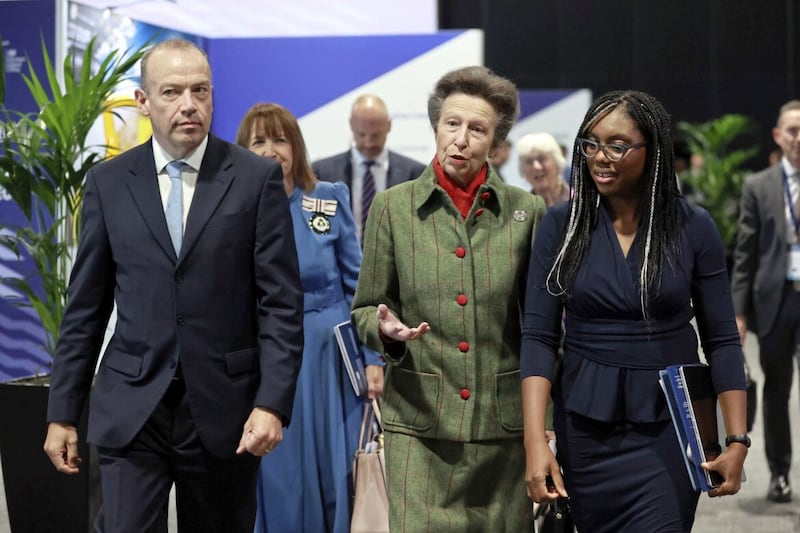WHOEVER emerges victorious from Northern Ireland’s election on May 5, the road ahead will be tough.
Awaiting the incoming Executive will be an extensive to-do list packed with arguably the greatest set of challenges faced by any administration. From urgent action on decarbonisation, to rebuilding the economy in the wake of the pandemic, all while managing the after-effects of Brexit and a growing cost-of-living crisis exacerbated by the horrific events unfolding in Ukraine, the challenges are significant. But there are solutions – and they begin with establishing a clear vision for our future economy.
At CBI Northern Ireland, we believe that, with the right approach, there are three key priorities where bold action can help to reset and revive the Northern Ireland economy.
Firstly, we must strive to develop Northern Ireland as a productive, competitive and inclusive economy. Key to this will be new innovative measures to help reverse the enduring problems of economic inactivity, a local brain-drain and low productivity.
This will require the new Executive to work in partnership with industry to address skills gaps and build new pathways to work.
The CBI’s Employment Trends survey shows how crucial this is. Access to skills has been highlighted as the key concern for firms, with more than three quarters (77 per cent) rating it a threat to the country’s labour market competitiveness. So what can be done? The 10x Skills Strategy was a welcome starting point, but it needs to be backed up with funding.
Businesses want to see ring-fencing funds returned to them from the Apprenticeship Levy. The creation of a flexible skills fund to target recognised skills deficits would be ideal.
Transforming Jobs and Benefits Offices into Jobs and Skills Hubs can support young people into jobs and training, while funding to stimulate lifelong learning ambitions will upskill and reskill workers. Retaining local talent will also be critical to the local economy’s future success.
The current Executive restrictions on local universities with regard to their funding models is not conducive to retaining NI school leavers. Higher and Further Education in Northern Ireland needs to be properly funded so we can create more places for local students and put a stop to the significant outflows of young people.
No other region in the UK or Republic of Ireland allows their young talent to leave in such high volumes.
It is vital too to engage with the UK Government to replace the lost £65million of EU Structural Funds to reignite investment in research and innovation.
Together, these measures can deliver the skilled workforce firms need to grow productivity and compete internationally.
Secondly, businesses will be looking to the new Executive to build a sustainable economy.
The path to sustainability is a road marked with opportunity, but this next term is perhaps the final opportunity to lay the groundwork necessary to attract the investment needed for a low carbon transition and green growth.
The potential is there. Northern Ireland can be a world leader in areas like hydrogen and sustainable agriculture. We can become a significant exporter of new low carbon products and services.
But achieving a low carbon future will require swift movement from ambition to delivery. Right now, Northern Ireland remains the only UK and Ireland administration lacking a statutory framework for reducing greenhouse gas emissions, while the UK Committee on Climate Change says Northern Ireland needs to invest a further £1.3billion a year by 2030 to meet net zero goals.
This will require significant private sector investment in infrastructure and technology – and a fast-moving and forward-thinking Executive to pave the way.
Business needs the Executive to deliver a new green growth strategy. This cross-cutting departmental strategy should include detailed actions on how we deliver things like electric vehicle charging infrastructure. We need politicians to work with business to create a detailed roadmap for energy transition, and clear policies rewarding green investments. Clarity on transport decarbonisation, green-focused planning reforms and a long-overdue shake-up of business rates – which incentivise energy efficiency spending – are all essential.
Underpinning all of this, we need a competitive economy. Firms need a stable and competitive platform– one that sends a clear message that Northern Ireland is an attractive place to invest and do business. A post-Brexit protocol settlement which avoids a hard border and protects both access to the EU single market and GB-NI trade is needed.
Other tasks on any new Executive’s agenda will include agreeing a Programme for Government which is aligned with a multi-year budget, delivering on the flagship projects pledged in New Decade, New Approach, and unlocking City Region and Growth Deals with match capital funding for regeneration and infrastructure.
In short, there is much work to be done. And business understands tough choices will have to be made. Yet the rewards are clear; let’s hope the politicians are fit for the task.
:: Angela McGowan is director of CBI Northern Ireland








